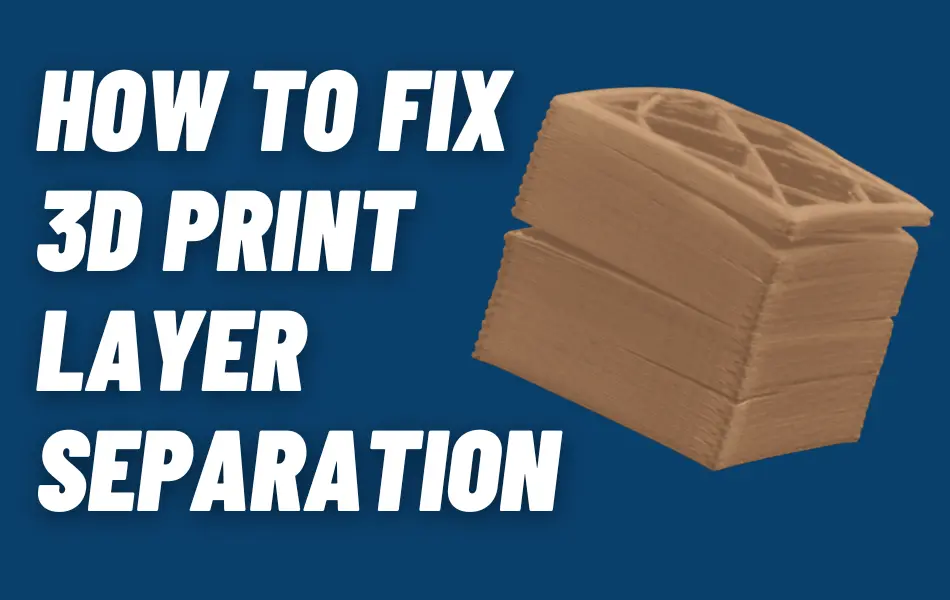3D print layer separation is one common problem everyone may encounter along their printing journey. Essentially, 3D printing is the process of building an object one layer at a time. Each consecutive layer is printed on top of the previous layer, creating the desired 3D model. However, for the final part to be solid and reliable, ensure that each layer bonds to the layer below. If layers are not strongly bonded together, the model might split or separate in the end. We will dive deep into some causes and provide suggestions for resolving each one.
Large Layer Height
If you notice that when you are printing models are separating and layers are not sticking together, the first thing you should review is your layer height compared to the size of your nozzle. The nozzle will extrude plastic through its tiny opening creating very detailed prints. These tiny openings usually are between 0.3 to 0.5mm in diameter.

Having small nozzles can also represent limitations on the height layer that can be used. For a successful print, you want your consecutive layer to be compacted to the previous one. For this to happen, you have to make sure that the layer height you select is 20% smaller than your nozzle diameter. By doing this, you will notice that your 3D print layer separation problem should go away.

If you have a nozzle of 0.4 mm in diameter, you shouldn’t go too far past a layer height of 0.32mm.
Low Printing Temperature
If after checking your layer height is correct you still notice that your layers are not bonding well, then you might need to increase your printing temperature.

As a general rule of thumb, warm plastic always sticks together much better than cold plastic. Below, you can find 3D printing temperatures for different printing filament types. Understanding these temperatures will also help you avoid problems like warping, stringing, and low bed adhesion.
| 3D Filament Type | Printing Temperature |
| PVA | 160-190°C |
| PLA | 180-220°C |
| ABS | 200-250°C |
| PETG | 220-255°C |
| TPE | 210-240°C |
| TPU | 230-250°C |
| ASA | 230-270°C |
To avoid 3D print layer separation, verify that you are using the correct printing temperature for the filament you are using. Try increasing the temperature by 10 degrees to see if the adhesion improves.


